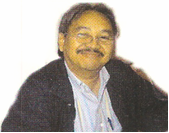Attention deficit hyperactivity disorder (ADHD), sometimes called attention deficit disorder (ADD), involves hyperactivity, difficulty paying attention and a tendency to act impulsively. Learning disorders involve problems with writing, math or reading (the best known of which is dyslexia). Oppositional defiant disorder is a related condition in which children oppose authority.
ADHD: Fast Facts
Reviewed By: Steven A. King, M.D.
- ADHD is an acronym for attention deficit hyperactivity disorder.
- ADHD is a set of chronic conditions marked by an inability to pay attention, hyperactivity and a tendency to engage in impulsive acts.
- Children with ADHD often struggle academically and may have difficulty establishing friendships and other relationships. As a result, they may develop poor self-esteem.
- There are three different forms of ADHD that affect children: predominantly inattentive, predominantly hyperactive/impulsive and combined.
- Predominantly inattentive ADHD is marked by difficulty paying attention.
- Predominantly hyperactive/impulsive ADHD is marked by difficulty controlling behavior.
- Combined ADHD combines symptoms of the other two forms of ADHD.
- Combined ADHD is the most common form of ADHD.
- Between 3 and 5 percent of school-aged children - or about 2 million children in the United States - have ADHD, according to the National Institute of Mental Health.
- Boys are significantly more likely to be diagnosed with ADHD, but the condition affects girls as well.
- The exact cause of ADHD remains unknown.
- Scientists now believe that changes in brain structure are a leading cause of ADHD.
- Heredity also appears to play a role in the development of ADHD.
- Poor parenting or disruptions at home or school cannot cause ADHD, although they may exacerbate the condition.
- Diagnosis of AHD usually involves a variety of tests and interviews with parents, teachers and other adults who can describe the child's behavior.
- Medications called psychostimulant drugs are the most common treatment for ADHD and appear to be extremely effective.
- Psychotherapy is also helpful, particularly in children who are diagnosed with other disorders associated with ADHD.
- Specialized learning techniques can help children with ADHD to perform better in school.
- Parents can help their children to better deal with ADHD by providing additional structure to the child's life and making expectations clear.







































No comments:
Post a Comment